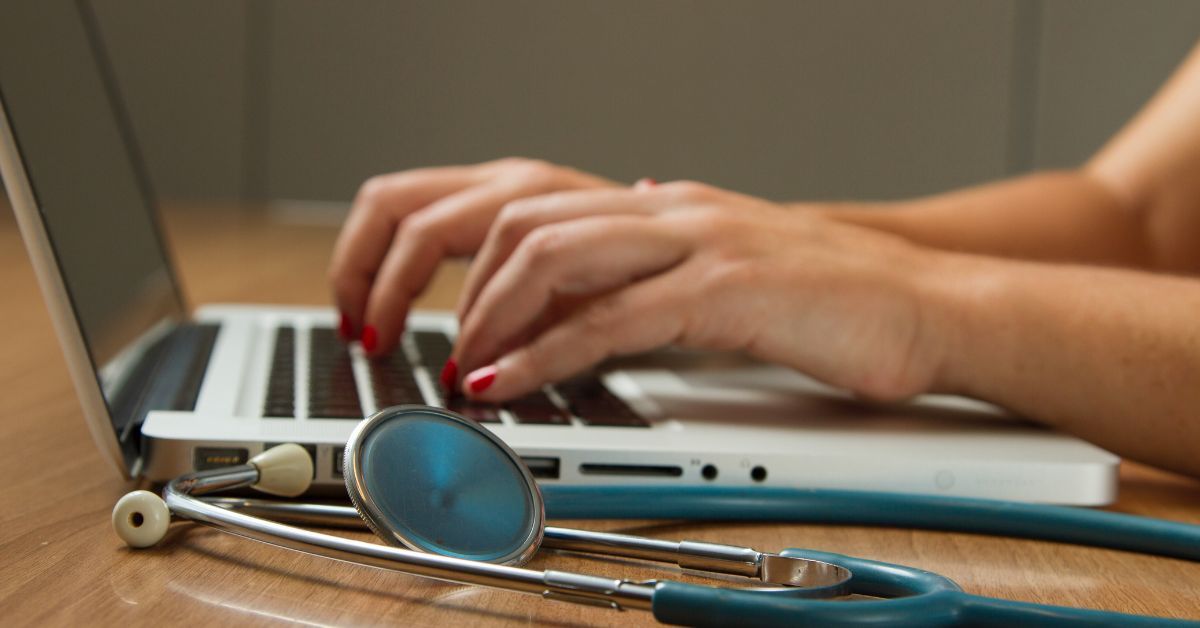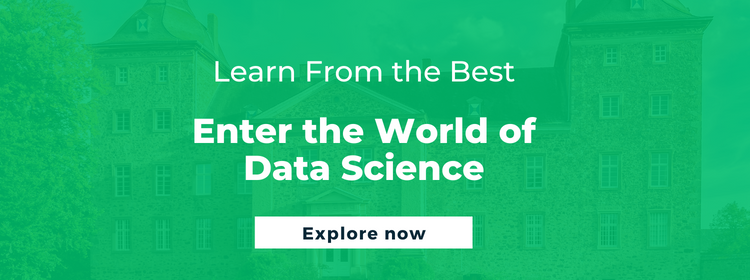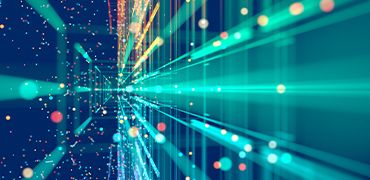10 Ways in Which Data Science Can Make Healthcare Better

Data science is a groundbreaking tool in the healthcare industry for improving patient outcomes, enhancing efficiency, and reducing costs. With the vast amounts of data generated from electronic health records, medical devices, clinical trials, and other sources, healthcare organizations can leverage data science to analyze and make sense of this data in ways that were previously impossible. These are some of the reasons that the demand for data scientists is surging. This is also supported by, well, data: According to the U.S. Bureau of Labor Statistics, nearly 13,500 openings for data scientists are predicted each year from 2021 to 2031. So, if you are looking to build a lucrative career in this space, then this blog is for you. Learning the fundamentals of data science in healthcare, its benefits, and its challenges will be a good start.
What is Data Science?
Simply put, data science is the study of massive amounts of data to extract meaningful insights to make informed decisions. It uses modern tools and techniques to identify patterns and derive meaningful information from raw, structured, and unstructured data. Data science today is implemented across a variety of industries such as healthcare, e-commerce, finance, transport, and gaming.
Applications of Data Science in Healthcare
The health industry generates massive amounts of data. Therefore, being able to handle, manage, and organize it to help in patient care, improve the efficiency of processes, etc, is very important. This is where data science in healthcare can make a difference. Here are 10 ways in which data science can make healthcare better.
Medical Image Analysis
The process of obtaining meaningful information from medical images is called medical image analysis. Imaging techniques include Magnetic Resonance Imaging (MRI) scans, Computed Tomography (CT) scans, and X-rays. The involvement of data science in these imaging techniques has revolutionized the healthcare industry as it helps extract complex information from numerous images in a short period. This, in turn, helps to save a lot of time and money.
Research and Development
Developing vaccines and medicines have become more important than ever before because of the rising world population and more and more people falling sick rather regularly. Before the advent of data science, researchers required extensive effort and work to come up with the right medicines, or even find a cure in those rare cases. Now, with data science, it is possible to process the data gathered from millions of test cases within a few days, enabling researchers to successfully test and launch medicines or vaccines sooner.
Improved Patient Outcomes
Today, people extensively use smartwatches and physical fitness monitors, all thanks to the Internet of Things (IoT). These gadgets can track and manage people’s health. They also generate a lot of data, which data scientists then scan to identify patterns and extract meaningful information. Doctors use this information to treat their patients more effectively.
Cost-Effectiveness
Data scientists can analyze Electronic Health Records (EHRs) to identify patients’ health patterns. Doing so can help prevent unnecessary treatment or hospitalization. Conversely, doctors can catch any change in the pattern in time and ensure people get treated on time.
Decoding Genomes
Before the arrival of data science tools and powerful computation, healthcare organizations spent a small fortune on genomics (the study of sequencing and interpretation of genomes). Now, data science makes it possible to derive insights from the gene at a much lower cost and in a much shorter period.
Undiagnosed Disease Discovery
While doctors may scrutinize images and tests about patients’ initial complaints, a machine can detect other diseases waiting in the wings. For example, while diagnosing a fractured rib, a doctor may also end up catching any other potentially debilitating disease that’s lying dormant. Data science’s contribution to the advancement of machine learning will thus enable doctors to inspect a patient for probable and primary conditions.
Predictive Analytics
The predictive analytics model uses data to analyze and search for patterns and correlations. For instance, experts can look at data gathered from multiple sources for patterns and correlations and can try to identify many things. These can be the symptoms of a disease, the extent of damage, and the stages of the disease among other things. The predictive analytics model uses all of this information to diagnose a patient’s condition and strategize the appropriate treatment.
Diagnostics
According to CNN, more than seven million patients are misdiagnosed annually in emergency rooms in the U.S. To fix such diagnostic failures, startups such as Enlitic and Bruxlab have started using data science to increase the efficiency and accuracy of diagnostics and create better patient outcomes.
Automated Pharmacies
Automating a pharmacy’s routine and time-consuming tasks such as medication packaging, dispensing, tracking, retrieval, and updating can save time and labor. The innovations and advances in data science have made automation possible in pharmacies. Automated pharmacies can also avoid potentially dangerous and expensive errors.
Virtual Assistance for Patients
Data scientists have developed AI platforms and chatbots to help people get virtual medical assistance during emergencies. Furthermore, people who suffer from mental illnesses such as depression, anxiety, and Alzheimer’s can leverage virtual applications to complete their daily tasks. Ada and Woebot are some of the most popular examples of virtual assistants.
ALSO READ: What is Data Science? Why is This Career Path in Demand? Find Out Now!
Challenges of Data Science in Healthcare
 Although data science in healthcare has the potential to improve patient outcomes and reduce costs, it also has several challenges that need to be addressed. Some of the challenges are as follows:
Although data science in healthcare has the potential to improve patient outcomes and reduce costs, it also has several challenges that need to be addressed. Some of the challenges are as follows:
Privacy and Security
Healthcare data can often be sensitive and subject to privacy regulations. Therefore, protecting such data from misuse is key to earning and maintaining patients’ trust. Data breaches in healthcare can also involve legal complications.
Translating Insights Into Clinical Practice
One of the main challenges of data science in the healthcare sector is translating findings into clinical practice. It needs to be integrated into clinical workflows to make sure the findings generated can be put into practice to improve patient outcomes.
Ethical Concerns
There are several ethical concerns when it comes to leveraging data science tools in healthcare. Patients’ consent, for example, is one of the most important ethical considerations to be aware of when using this technology in the healthcare industry.
Gain Insights on Data Science in Healthcare with Emeritus
The global big data analytics market is expected to be valued at more than $650 billion by 2029. So, if you want to get a headstart in the field, be sure to take up Emeritus’ data science courses. Get a comprehensive knowledge of data science and its applications in different fields and boost your chances of success.
Write to us at contact@emeritus.org







